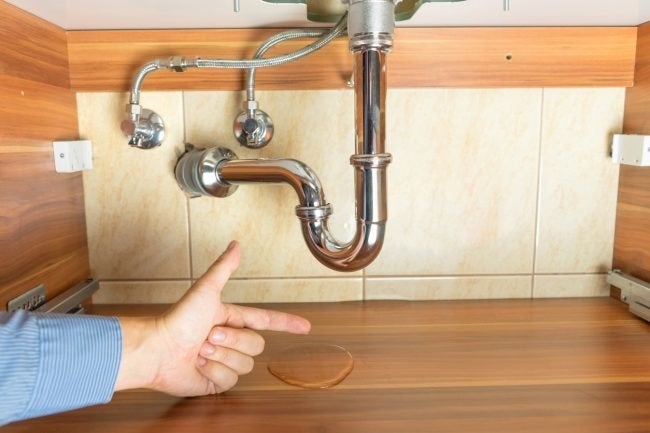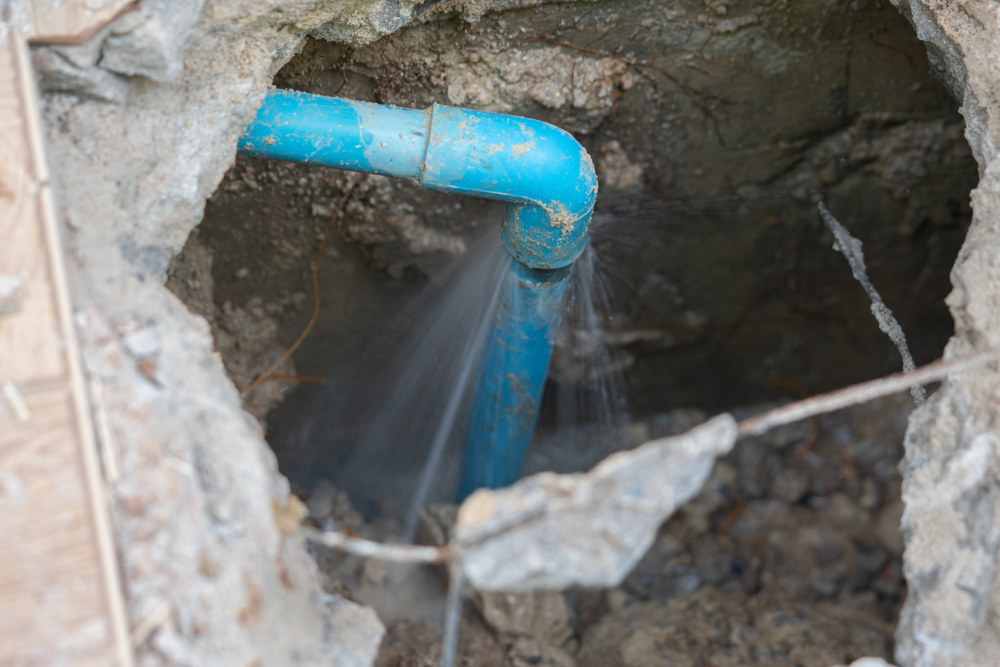Overview To Water Leakage Detection At Home
Overview To Water Leakage Detection At Home
Blog Article
The article author is making a number of great points on Locating water leaks in general in this article in the next paragraphs.

Early detection of dripping water lines can mitigate a possible catastrophe. Some small water leakages may not be visible.
1. Analyze the Water Meter
Every home has a water meter. Inspecting it is a proven way that helps you discover leakages. For beginners, switch off all the water resources. Make sure no one will flush, use the tap, shower, run the cleaning device or dishwasher. From there, most likely to the meter as well as watch if it will certainly alter. Since no one is utilizing it, there should be no activities. If it relocates, that indicates a fast-moving leakage. Similarly, if you spot no changes, wait an hour or 2 and also inspect back again. This implies you may have a slow-moving leak that can even be below ground.
2. Inspect Water Usage
Analyze your water bills as well as track your water intake. As the one paying it, you ought to observe if there are any inconsistencies. If you detect sudden changes, despite your usage coinciding, it suggests that you have leaks in your plumbing system. Keep in mind, your water expense must drop under the same range on a monthly basis. A sudden spike in your bill suggests a fast-moving leakage.
At the same time, a constant increase monthly, despite the exact same routines, reveals you have a slow-moving leakage that's likewise slowly rising. Call a plumber to completely inspect your home, specifically if you really feel a cozy location on your flooring with piping beneath.
3. Do a Food Coloring Test
When it involves water usage, 30% originates from commodes. Examination to see if they are running correctly. Decline flecks of food shade in the tank and wait 10 mins. There's a leakage between the storage tank as well as bowl if the color in some way infiltrates your bowl during that time without flushing.
4. Asses Exterior Lines
Do not neglect to inspect your outdoor water lines too. Examination faucets by connecting a garden tube. Must water leak out of the connection, you have a loosened rubber gasket. Replace this and make certain all links are tight. If you've obtained a lawn sprinkler, it will aid get it skillfully analyzed and also preserved yearly. One little leak can throw away tons of water and also spike your water costs.
5. Evaluate and Examine the Situation
Homeowners ought to make it a behavior to check under the sink counters as well as also inside cabinets for any type of bad odor or mold and mildew development. These two red flags show a leakage so punctual attention is needed. Doing regular inspections, even bi-annually, can conserve you from a significant problem.
If you know your house is already old, maintain a careful eye on your heating systems, hoses, pipes etc. Check for discolorations as well as damaging as most home appliances as well as pipelines have a life span. They will certainly additionally normally wear away due to wear and tear. If you presume dripping water lines in your plumbing system, don't wait for it to escalate. Call a professional plumber right now so you don't end up with an awful mess in your home.
Early discovery of dripping water lines can minimize a prospective catastrophe. Some small water leaks may not be visible. Checking it is a surefire means that aids you find leaks. One tiny leak can squander loads of water as well as surge your water bill.
If you think leaking water lines in your plumbing system, don't wait for it to rise.
4 Top Leak Detection Hacks
The Garden
Inspect your garden for signs of leaks in the drip irrigation system, faucets and hoses. Check if your pool is leaking.
Hose Bibs
Check the hose bibs (pipes onto which you hook your hoses) for leaks. Most homes have a hose bib in the front and another in the back.
Put the metal tip of a large flat screwdriver onto the metal of the hose bib. Place the knuckle of your thumb on top of the screwdriver, and put your ear to the knuckle to allow sound to travel to your eardrum. Sounds of leaking should be relayed via the screwdriver to your eardrum, much like a stethoscope.
Repeat the process with other hose bibs, identifying the one that emits the loudest sound. The leak will be closest to the unit with the louder sound.
When you call your plumber, show him the correct hose bib, as this will help save time in detecting the leak, thus saving you money.
If you don't hear any sound from your hose bibs, use the same process inside your house with the indoor faucets.
Meter Line
Is your main water line leaking? Shut off the shut-off valve and every faucet and water-using appliance in your home. Leave it as is for 20 minutes before you return to check the reading on the water meter. If it has changed, or if it continues to run, your meter line may have a leak. Outdoor leaks may result in wet spots, puddles or overzealous growth on patches of grass.
https://www.antaplumbing.com/blog/4-top-leak-detection-hacks/

Do you appreciate reading about Locating water leaks? Put a short review below. We'd be interested to find out your responses about this blog posting. Hoping that you come back again later on. If you please take the opportunity to share this entry if you enjoyed reading it. Thanks for your time. Please come visit our website back soon.
Report this page